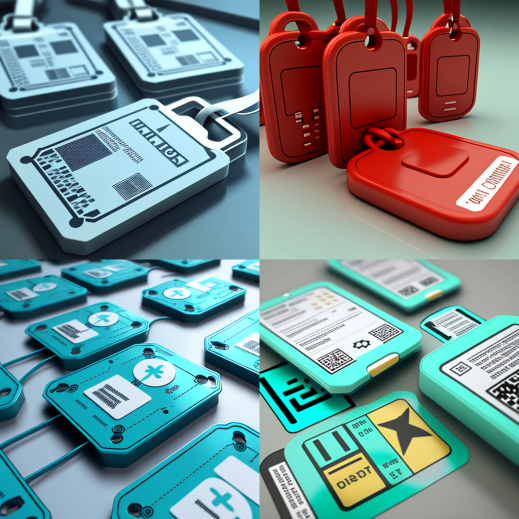RFID Technology in Medical Industry

Radio-frequency identification (RFID) technology has revolutionized various industries, and the healthcare sector is no exception. RFID technology has proved to be a valuable asset in the medical industry, providing significant benefits in improving patient care, inventory management, asset tracking, and workflow efficiency.
RFID technology uses radio waves to communicate between a tag or label and a reader device. The tag or label is attached to the item, and the reader device is used to identify, locate, and track the item or person. In the medical industry, RFID technology is utilized in various applications such as patient identification, inventory management, equipment tracking, and medication administration.
Patient Identification
RFID technology has greatly enhanced patient safety and privacy by providing accurate patient identification. RFID tags can be attached to patient wristbands, allowing medical staff to quickly and accurately identify patients and access their medical records. This reduces the risk of medication errors, wrong patient surgery, and other medical errors caused by misidentification.
Inventory Management
Managing medical inventory can be challenging, with thousands of items being used daily. RFID technology can be used to track and manage inventory, reducing inventory costs and improving inventory accuracy. RFID tags can be attached to medical supplies, enabling medical staff to easily locate and track inventory levels, and receive alerts when stock levels are low.
Asset Tracking
RFID technology can also be used to track and manage medical equipment, reducing the risk of equipment loss and theft. RFID tags can be attached to equipment, enabling medical staff to easily locate equipment, monitor equipment usage, and receive alerts when equipment is not returned or needs maintenance.
Medication Administration
RFID technology has been utilized in medication administration, ensuring accurate and timely medication delivery. RFID tags can be attached to medication containers, enabling medical staff to verify the correct medication, dosage, and patient before administering the medication. This reduces the risk of medication errors and improves patient safety.
RFID technology has also been used to track medication adherence, ensuring patients are taking their medications as prescribed. RFID tags can be attached to medication containers, enabling medical staff to track medication usage, and receive alerts when medication is not taken as prescribed.
Conclusion
RFID technology has transformed the medical industry, providing significant benefits in improving patient care, inventory management, asset tracking, and workflow efficiency. The technology has greatly enhanced patient safety and privacy, reduced inventory costs and improved accuracy, reduced the risk of equipment loss and theft, and ensured accurate and timely medication delivery. The medical industry will continue to see the benefits of RFID technology as it continues to evolve and improve healthcare delivery.

